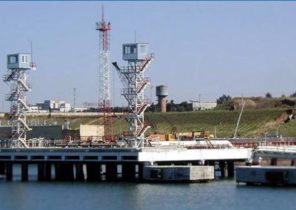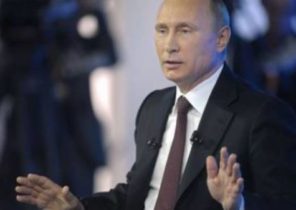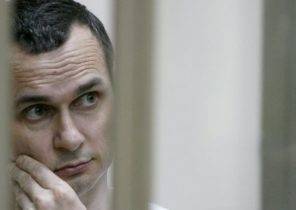Against the background of instability in global oil market in Russia unfolds a discourse about the viability of raw model of the economy. Some opinions on this matter raise the question of what the era of saturation of the economy through energy exports is coming to an end.
Some experts believe that the government creates conditions for the development of non-oil sectors of the economy, encouraging the export of energy resources. Others believe that depending on commodity exports is not bad, and alternative production and widespread in the country.
The government criticized the raw model
“[Oil and gas] are the backbone [of the economy]. And we got not a bell, and some kind of alarm bell [in response to falling oil prices]. All, folks! Good to talk about sisanie the oil needle. We have 15 years of hear you get off… it is Impossible to give the country a strategic risk due to such structure of the economy. This technological system becomes obsolete, it is a fact,” — said in an interview with Forbes, the head of RUSNANO Anatoly Chubais.
Similar opinions were expressed by other senior officials. Deputy Prime Minister Yuri Borisov said that the need to get off the “oil needle” and create high-tech production.
“It is impossible to live under the constant threat of volatility of demand and supply and volatility in oil prices. The Russian budget should be stable and not be affected by these global fluctuations”, — quotes its RIA Novosti.
Similarly, said the head of Roscosmos, Dmitry Rogozin.
“Borisov’s right. The USSR became a great power due to industrialization, but not at the expense of monetarism and sale of hydrocarbons,” — he wrote on his Twitter feed (later the tweet was deleted).
The oil and gas sector becomes unprofitable
The oil and gas sector is becoming less profitable. In the first quarter of 2020, almost none of the major companies in this sector are unable to earn money. Gazprom, according to calculations by Interfax based on data from the company, for the first time in history was a loss of 306 billion rubles. Rosneft lost 156 billion (against a profit a year earlier). BP company (the shareholder of Rosneft, is also involved in production) announced “historic” loss of $ 4.4 billion, which occurred due to the fall in oil prices. Tatneft (the owner of the gas network Neste in Russia) earned a profit of 50.3 per billion. LUKOIL and Surgutneftegas have not yet published the results of a quarter.
The chamber has announced a strong dependence of the oil sector from the tax benefits. In 2018, the share lightroomo oil production accounted for 50%, in 2035 it could reach 90%. While more than two-fold increase provided oil companies with concessions in recent years has not led to comparable growth of investments, says the report of the Department.
Russian raw materials to lose the competition
Against this background, the world energy trade events unfold which may have an adverse impact on the export of Russian raw materials. At the end of 2019 Poland (the seventh largest consumer of Russian gas) has refused to renew expiring at the end of 2022 the contract with “Gazprom” on gas supply, write “Vedomosti”.
Turkey started to purchase liquefied natural gas in Qatar, which in the coming years it intends to greatly increase LNG production. Belarus began to buy oil from Saudi Arabia.
The crown Prince of Saudi Arabia Mohammed bin Salman al Saud in 2018 in an interview with Bloomberg said that in the future the number of countries producing oil on the world market will be significantly reduced.
“After 19 years, production in Russia, with its ten million barrels greatly reduced or completely stopped,” — he said (quoted by RIA news). The demand for oil in the world will grow at a rate of 1-1. 5% per year until 2030, said the Prince.
For avoiding dependence on raw materials no conditions
About needing to get away from oil and gas dependence, say a long time, however, the policy of the government of the Russian Federation, on the contrary, is intended to promote this relationship, the words of gendirektora Independent analytical Agency oil and gas sector and associate Professor of the Ranepa Tamara Safonova.
The transition to new, non-oil economic model it is possible to speak only after will overcome the preparatory period of large-scale modernization of production and development of alternative technologies, she says.
“The main thing in the transition to non-oil model is the reduction of export of oil and gas that can be resolved by increase of export duties on raw materials to prohibitive levels. However, the tax maneuver on the contrary, implies zero customs duty, stimulate the export of raw materials and lack of investment in deep processing and construction of petrochemical facilities”, says Safonov.
Every crisis accompanied by the collapse in oil prices shows the need of economic diversification and development in the sphere of high technologies, while “it is important to create an enabling business environment and a system of subsidies that is configured not to payments lost income for unrealized projects, and on the ideology of tax breaks for maximum launch of new projects prior to their return”.
“This mechanism will provide an opportunity to launch many innovative projects to create jobs, diversify the economy, create a base for future revenue,” she said.
Raw model still viable?
Another opinion leader information and analytical center “Alpari”, a former researcher of the center for financial and banking studies Institute of economy, RAS Alexander Razuvaev. He sees “nothing tragic [that] oil and gas in Russia and accounts for 20% of GDP, 40% of the budget and 60% of exports”.
“Moreover, we export soon likely to see the figure 50/50. The oil and gas sector is the main competitive advantage of Russia in the global economy, the basis of capitalization of the Russian stock market and, by the way, very high — tech business,” he said.
In his opinion, to treat Russia as a “country gas station” can only “a very wild people.” In 2020, according to the IMF forecast, Russia will become the fifth economy in the world (though in purchasing power parity, not in real terms — approx. Eurasianet ed.), says Razuvaev, and the reason is, apparently, not only the export of oil and gas.
“Commodity-dependent economies, Russia was in 1998, after the reforms of Gaidar and Chubais, when GDP fell in half, from the actions of the reformers in the less affected oil and gas sector. For this, we should probably say thanks to Prime Minister Viktor Chernomyrdin. The world is beginning to come out of quarantine, restores the demand and price of oil. I think at the end of the year we will see $ 50 in 2021-2022 target 50-70 dollars,” he says.
In addition, the authorities, in his opinion, demonstrate “significant” progress in getting rid of oil dependence.
“Twenty years ago all Russian “blue chips” in addition to RAO UES of Russia, Mosenergo and Norilsk Nickel were from the oil and gas industry. Now a totally different situation. Just look at the capitalization of companies on the Moscow exchange, Sberbank, MTS, ALROSA, Aeroflot, Magnet, NLMK, Yandex etc,” — says Razuvaev.
However, it is unlikely that the era of dependence on raw materials Russia will last for a long time, and the government inevitably will have to develop other areas. The country has proven oil reserves for 35 years (including tight oil), and gas — more than 50 years, he says.
“It is noted that oil reserves without regard to resources hard to get enough less than 20 years, and the reserves of “dry gas” [i.e. liquefied and pipeline] are evaluated in [else] lower figure,” he says.
Total in the country, according to the accounting chamber identified 283 mineral Deposit from which the extraction is carried out at 86, and the bulk of production accounts for a fifth of such deposits. The potential of discovering new major fields in already developed areas almost exhausted, and investing in the production of fuel in the underdeveloped regions is risky because there is the necessary infrastructure, says Razuvaev.
Despite this, he notes, “many Western financial companies believe that the reserves of Gazprom is so great that holding them will not even be able to fully monetize”.







